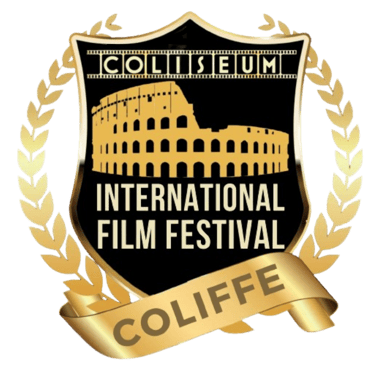COLIFFE
The fifth edition of the international film festival
which celebrates works from all over the world.
INTERNATIONAL DOCUFILMS V EDITION 2025
COLiseum International Film FEstival
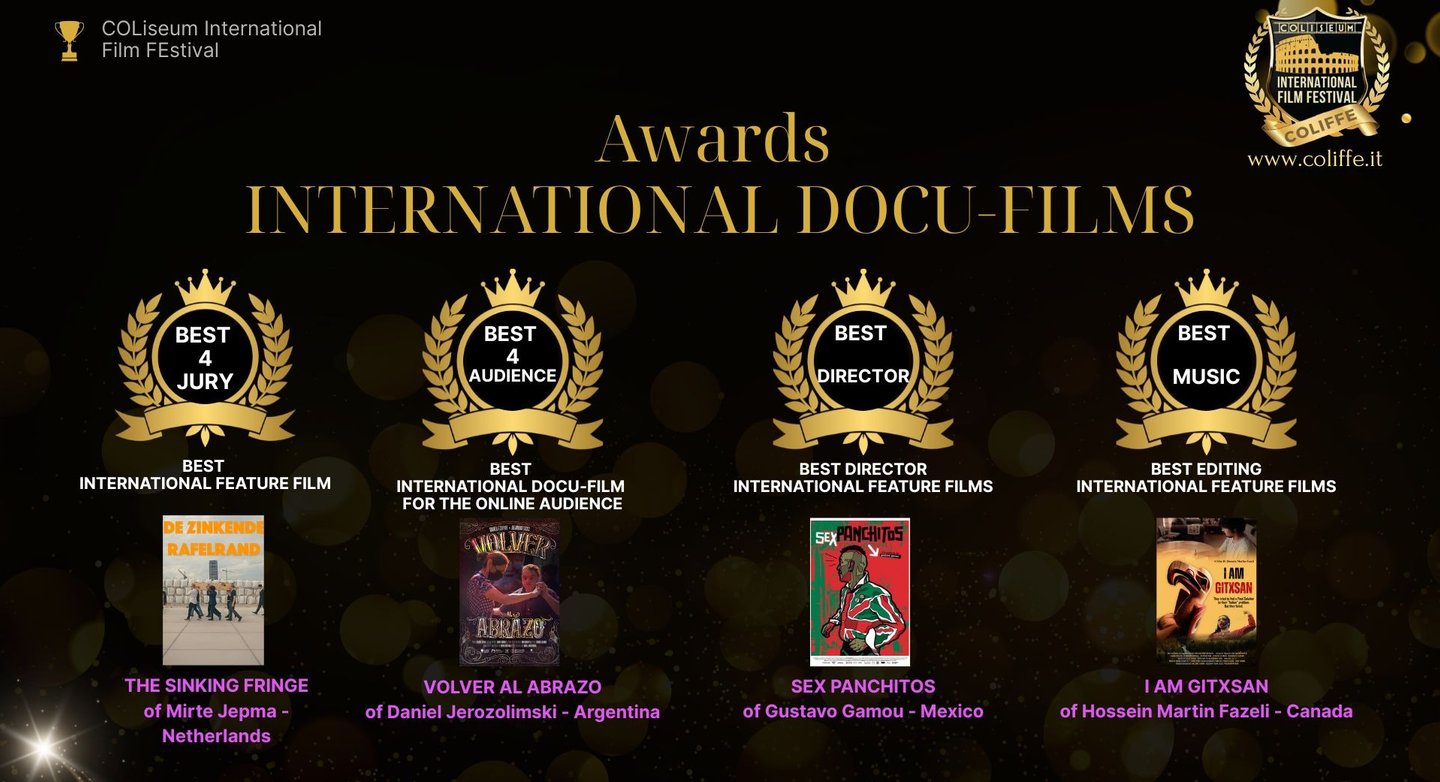


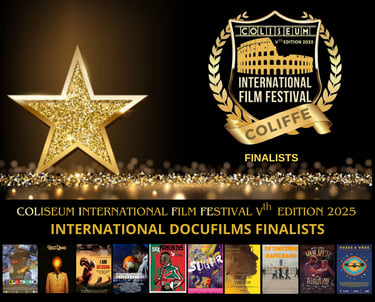
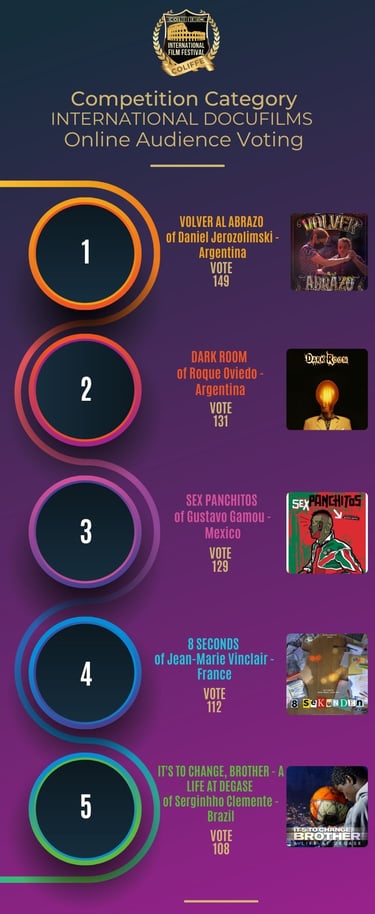

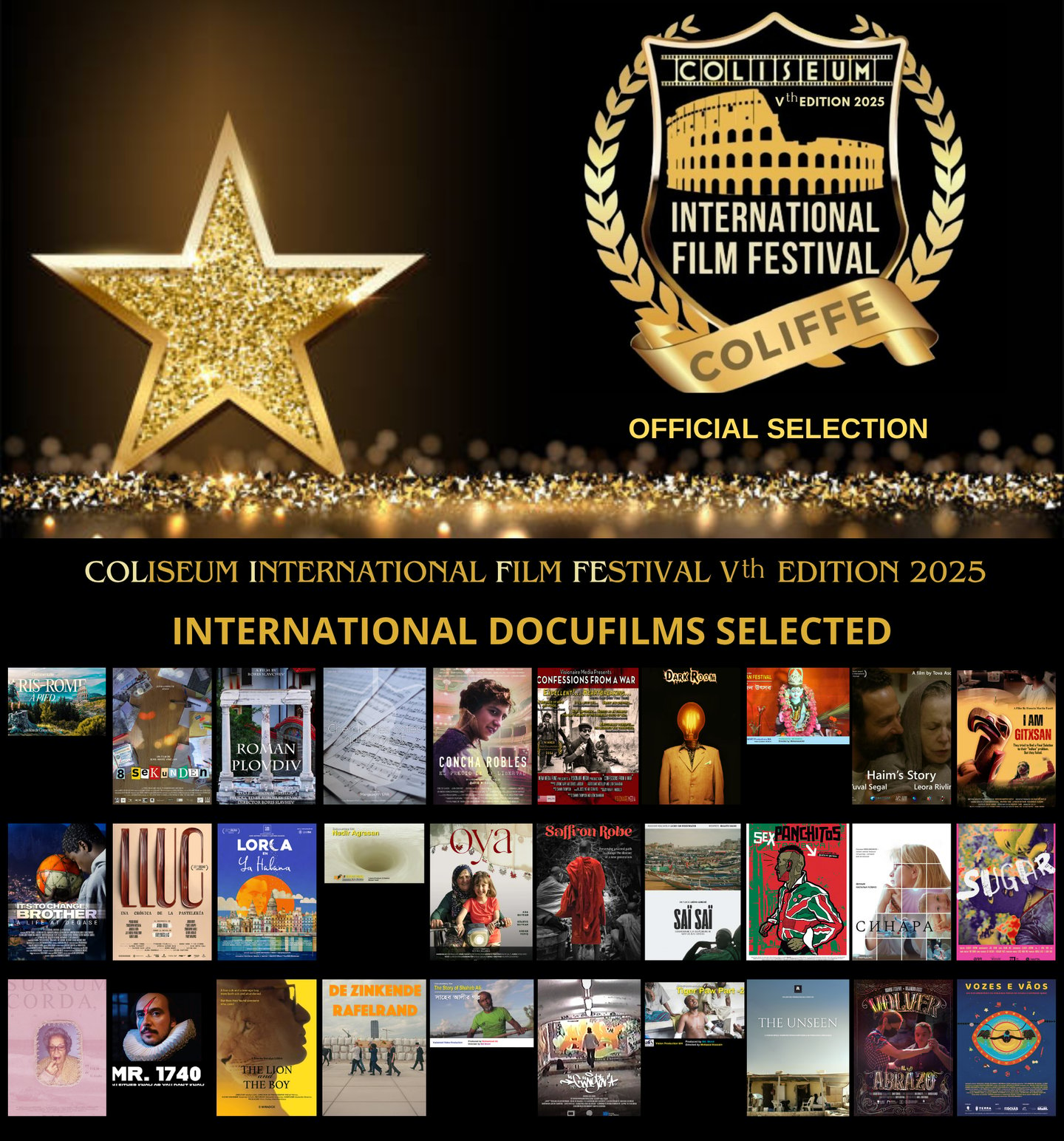

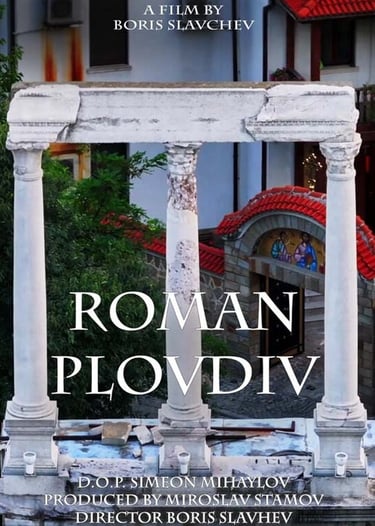

"PER ASPERA" FROM PARIS TO ROME ON FOOT.
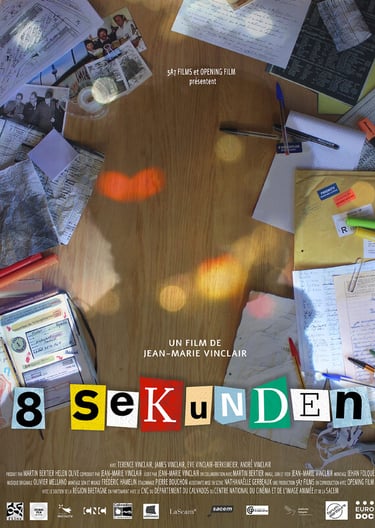

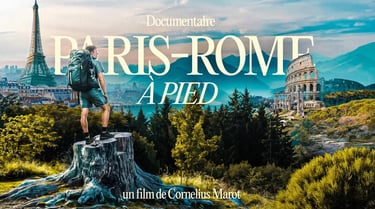

of
Cornelius Marot
8 SECONDS
of
Jean-Marie Vinclair
ANCIENT ROMAN PLOVDIV
of
Boris Slavchev
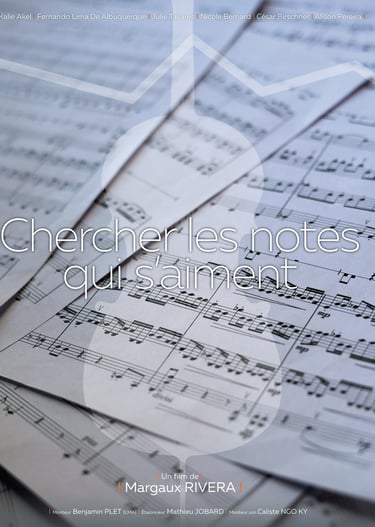

CHERCHER LES NOTES QUI S'AIMENT
of
Margaux Rivera
In the aftermath of chronic anxiety and emotional collapse, a young man sets off on foot from Paris to Rome. Over 64 days and nearly 1,600 kilometers, he crosses mountains, villages, and inner landscapes—carrying nothing but a backpack, a camera, and a longing to reconnect with himself and others.
In 2005, when filmmaker Jean-Marie Vinclair filmed the unveiling of the ‘Raymond Vinclair’ plaque in the square that will bear his name, he was stunned: why was this relative, who died as a martyr in Germany during the Second World War, unknown to his own family? A few years later, when the filmmaker is married to a German woman and the father of two boys, the spectre of Raymond haunted him and the enigma remained. Parents and children embark on a quest to find the thread of this lost memory.
The film takes viewers on an immersive journey that reveals not only the most famous monuments, such as the majestic amphitheater and stadium, but also the latest archaeological discoveries that shed new light on the Roman period of one of the world's oldest cities. What sets this documentary apart is its extraordinary photography, with unique aerial perspectives. The film seamlessly interweaves these breathtaking drone shots with ground exploration. As the narrative unfolds, archaeologists, experts, and architects share their insights, offering a comprehensive understanding of Plovdiv's historical significance during the Roman period.
Writing a piece for a cello orchestra, body percussion, and an audience is the challenge that Fernando, director of the Violoncelles en Folie festival, has set to Kalie, composer-in-residence. Discover the creative process, from writing a work to its first stage performance, with passionate musicians who blend classical music, wild rhythms, and human adventures.
France
France
Bulgaria
France
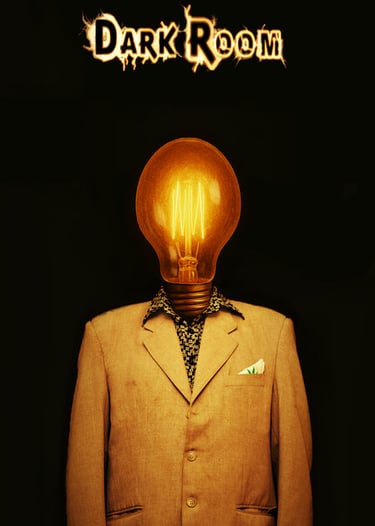

CONCHA ROBLES. EL PRECIO DE LA LIBERTAD.
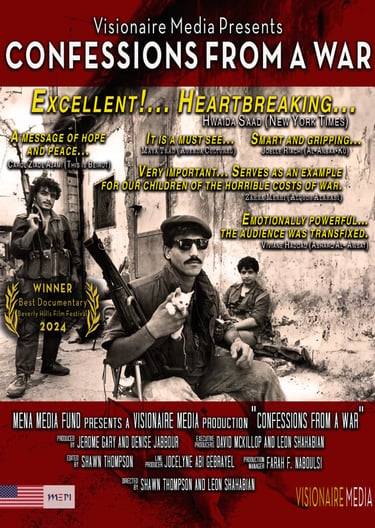

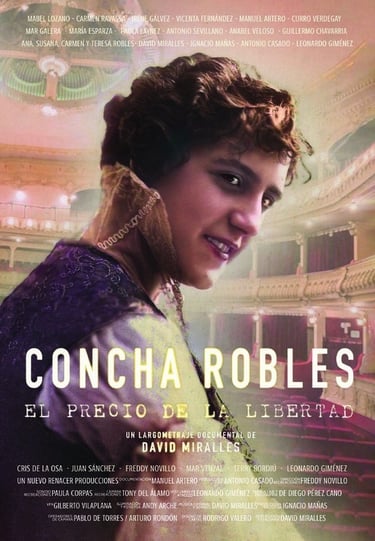

of
David Miralles Quesada
CONFESSIONS FROM A WAR
of
Denise Jabbour
DARK ROOM
of
Roque Oviedo
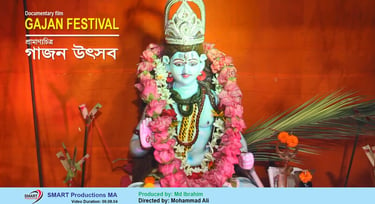

GAJAN FESTIVAL
of
Mohammad Ali
Documentary that tells the incredible story of Concha Robles, a theatre actress, singer and poet from Almería (Spain) who captivated an entire country and was murdered by her ex-husband, Carlos Berdugo, in front of her audience.
Confessions From A War is a feature documentary about the Lebanese Civil War (1975-1990). It is not about what happened but about the emotional and psychological cost of war and the value of forgiveness and repentance. Finally, it is not just about this war; it is about all wars.
A musical group, made up of unique personalities, tries to come together and agree on putting on a show. Their projects are influenced by forces of supernatural origin. Each member faces a personal struggle with hidden enemies.
Gajan Utsav is a popular Hindu religious festival celebrated in West Bengal, India, and Bangladesh. This festival focuses on the worship of Manasa and Dharma Thakur. The Gajan of Shiva is performed by monks or devotees during the last week of the month of Chaitra. The festival concludes with the Charak Puja during Chaitra Sankranti. The Dharma Gajan is usually held during the months of Baishakh-Jayishtha and Asar. An integral part of this festival is the fair. The Gajan monks or devotees try to please the God of the East by tormenting their bodies in various ways and performing certain sadhanas.
Spain
Lebanon
Argentina
Bangladesh
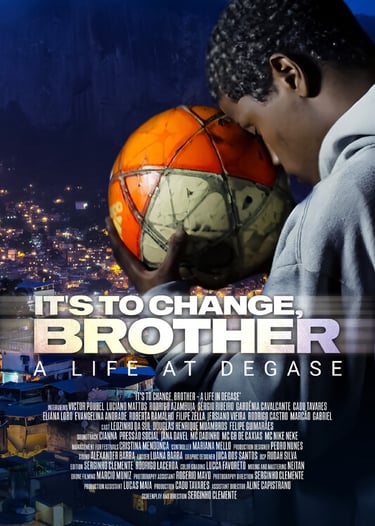

HAIM'S STORY
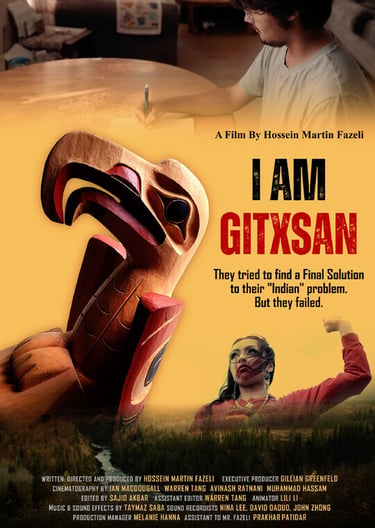

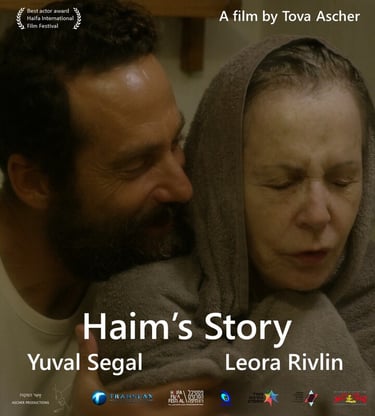

of
Tova Ascher
I AM GITXSAN
of
Hossein Martin Fazeli
IT'S TO CHANGE, BROTHER - A LIFE AT DEGASE
of
Serginhho Clemente
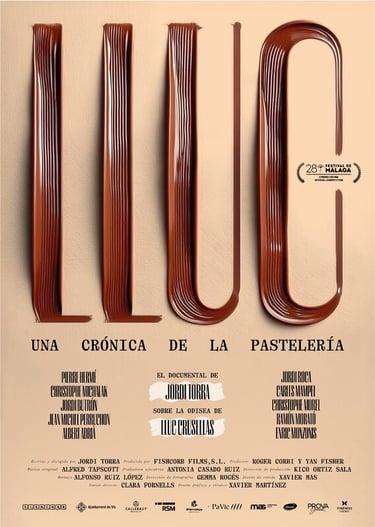

LLUC, UNA CRÓNICA DE LA PASTELERÍA
of
Jordi Torra Ferrer
"Haim's Story" is a story of a person's disintegration which could have been halted with a little generosity, compassion, or even just a little attentiveness; a personal story that reflects on an entire society.
"I Am Gitxsan" follows Phoenix Apperloo, a recent high school graduate who reconnects with his Indigenous roots in Hazelton, British Columbia, Canada. Inspired by encounters with residential school survivors, he writes a heartfelt letter to Prime Minister Trudeau about the injustices his people have endured. The documentary highlights the impact of colonialism on the Gitxsan community, highlighting their resilience through protests and legal action. The documentary culminates with a moving message of hope and determination, highlighting the strength of the Gitxsan people's indomitable spirit, the beauty of their culture, and their commitment to future generations.
The film investigates the facts surrounding Rio de Janeiro's old reformatory systems and examines the reality of the NOVO DEGASE (General Department of Socio-educational Actions), whose mission is crucial to the resocialization of adolescents in conflict with the law. Through humanized stories, the film reveals how the institution can transform lives, offering not only guidance, but also hope and opportunities for a better future. The topic is addressed by authorities such as judges, prosecutors, and public defenders, Federal Police officers, doctors, psychologists, a well-known television presenter, and young people who have personally experienced the reality of the system.
Lluc Crusellas faces the greatest challenge of his career: achieving the prestigious title of World Chocolate Master and thus entering the "Olympus" of the world's greatest pastry chefs. In his pursuit of excellence, he embarks on intense physical and mental preparation for the competition, surrounding himself with a great multidisciplinary team. During this process, he not only perfects his artistic and creative skills but also cultivates a resilient and focused mindset, ready to face the rigors of the competition. Along the way, he leaves his younger self behind to mature as a person and as a professional.
Israel
Canada
Brazil
Spain
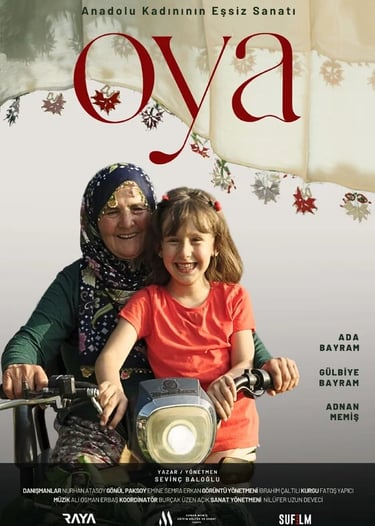

LORCA EN LA HABANA
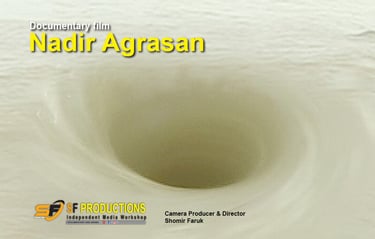

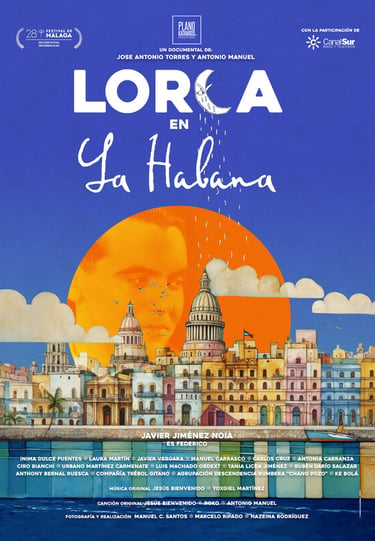

of
Jose Antonio Torres, Antonio Manuel Rodríguez
NADIR AGRASAN
of
Shomir Faruk
OYA
of
Sevinç Baloğlu
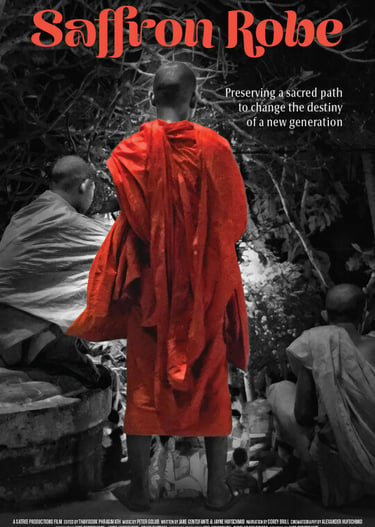

SAFFRON ROBE
of
Jane Centofante
The poet Federico García Lorca arrived in Cuba from New York in April 1930 and stayed eighty-nine days and said: ‘This island is a paradise, if I get lost, let them look for me in Andalusia or Cuba’.
Jamuna, a river which is mostly related to the history and heritage of bangla and bengali nation. Our enriched life is pictured through it. for the erosion river Jamuna lost her beauty. the people beside the bank of Jamuna are now empty. They are now living under open sky. they children are not getting basic fundamental rights like foods education and health. they are just to living. they have no alternative but to struggle. the struggle is for living. would it be possible to take initiative for the survival of Jamuna and its people and make their life enjoyable?
Gülbiye, the only woman in the village farming silkworms for the purpose of producing silk thread, teaches her granddaughter Ada about silkworm farming and the oya rituals through tales, while an oya collector embarks on a journey to discover the story behind one of his favorite oya. The story introduces to us oya's, which were once the voice of oppressed women but later became a source of empowerment by allowing women to achieve economic independence.
"Saffron Robe" is a documentary that follows a revered Buddhist abbot in the remote northern region of Laos as he navigates the challenges of a sacred life under a communist regime. An ambitious spiritual leader, Abbot Onekeo Sittivong defied convention by founding a new school for his country's poor and undereducated children. But in this school nestled in a misty forest, something different is happening. The abbot, his fellow saffron-robed monks, and young novices work tirelessly to revive the ancient practices and education of Laotian Theravada Buddhism, nearly lost to history.
Spain
Bangladesh
Turkey
U.S.A.
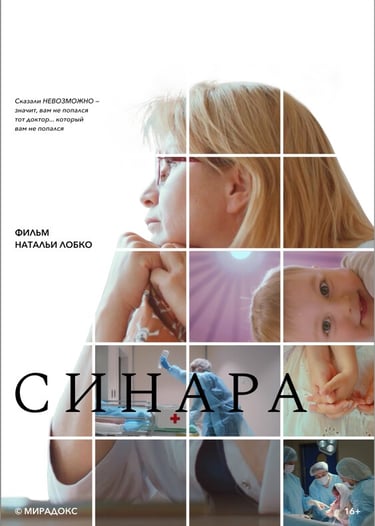

SAI SAI
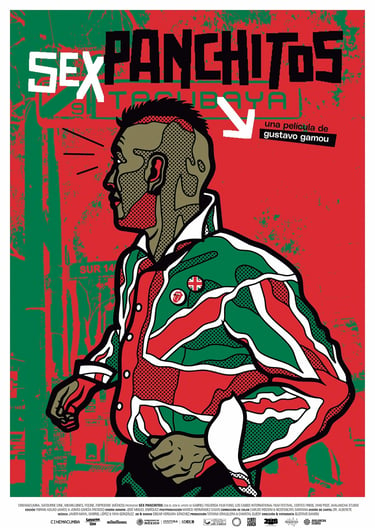

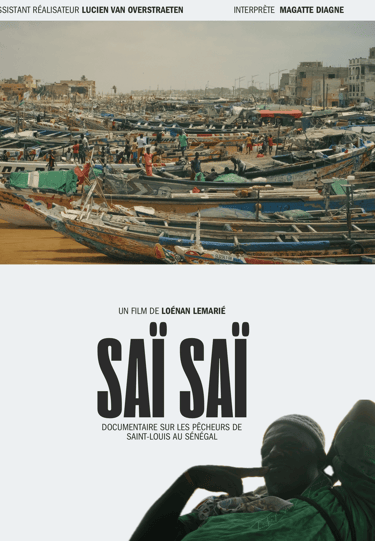

of
Loénan Lemarié
SEX PANCHITOS
of
Gustavo Gamou
SINARA
of
Natalya Lobko
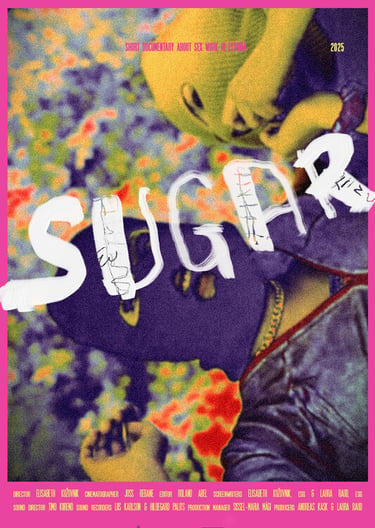

SUGAR
of
Elisabeth Kužovnik
In 2018, Senegalese President Macky Sall wrote a pre-election book, "Senegal at the Heart." In response, at the end of his term, the rap group Keur Gui composed a song titled "Saï-Saï au coeur" (Sai-Sai at the Heart), criticizing the government for its broken promises. Saï-Saï is a Wolof word meaning thief, swindler. This anger is shared by the Barbary-speaking fishermen of Saint-Louis, Senegal's former capital, located in the northwest of the country. Rising sea levels due to global warming and the activity of an oil and gas platform are making their daily lives more difficult.
Three members of the 1980s Mexican gang Los Panchitos now confront the harsh consequences of their past. As others fall to the streets or death, Ulti, Chivo Loco, and Canon fight for redemption, freedom, and survival in a city that left them behind.
Sinara is a doctor, a gynecologist surgeon. She is the last hope of hundreds of women. Women from all over the country come to her, on the verge of despair. If she doesn't help, then who will? And Sinara always helps. In order to save the patient the opportunity to become a mother, the doctor goes for a risky operation and gives women the happiness of motherhood.
“Sugar” explores the sex industry from various perspectives. It highlights several personal stories and reflects societal attitudes, providing an opportunity to understand how people experience this field and how individual choices, economic needs, and societal views affect those who work in the sex industry.
France, Sénégal
Mexico
Russian Federation
Estonia
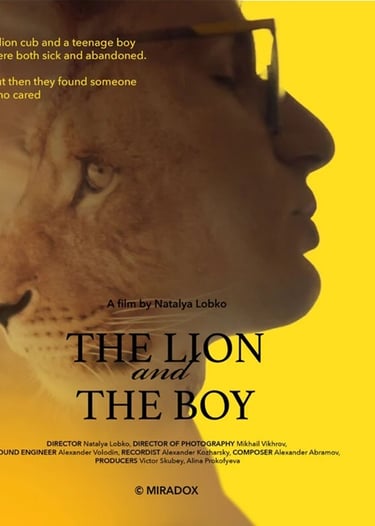

SURSUN CORDA, AMORE.
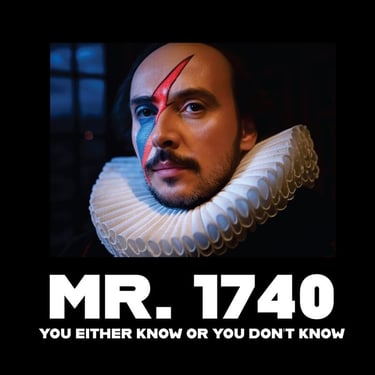

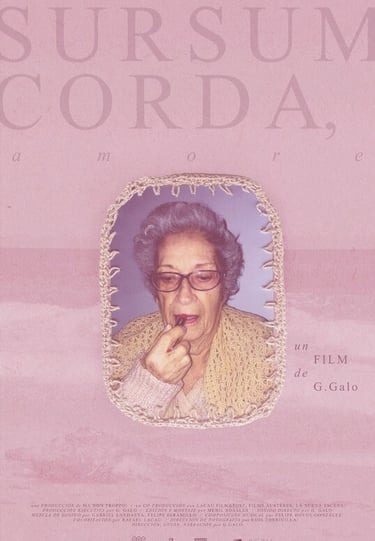

of
G. Galo
THE DEEP DIVE
of
Blair Murphy
THE LION AND THE BOY
of
Natalya Lobko
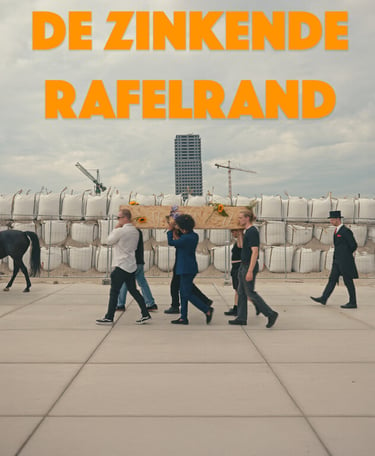

THE SINKING FRINGE
of
Mirte Jepma
Lucia Luciana, the filmmaker's nonna, agrees to undertake with him the last journey she wanted to make to Italy, her homeland. There she will have to decide whether to migrate for a second time in the midst of the current tragedy in Venezuela, the country where she has lived since 1957.
Pennsylvanian independent filmmaker Blair Murphy goes nuts exploring Shakespeare... and hits the jackpot
Sasha, a disabled boy with fused fingers, lay in an orphanage dreaming of playing the piano with an orchestra. Simba, an injured lion, was abandoned in a solitary cage at the animal shelter. He tremulously missed the owners who had given him away and longed to play alongside with someone again. Both were merely lonely and afraid. But one day, everything changed… How do fateful meetings transform lives? What challenges are truly insurmountable? Will the lion and the boy’s dreams come true?
The Sinking Fringe is a documentary about Amsterdam’s quirky Baaibuurt-West neighborhood, set to vanish by December 31, 2024. This vibrant community of free-spirited, close-knit residents will be transformed as part of an urban renewal project aimed at addressing the Dutch housing crisis. The plan involves raising the sinking land with seven meters of sand to prepare it for conventional housing, earning the area its nickname, 'The Sinking Fringe.'
Venezuela
U.S.A.
Russian Federation
Netherlands
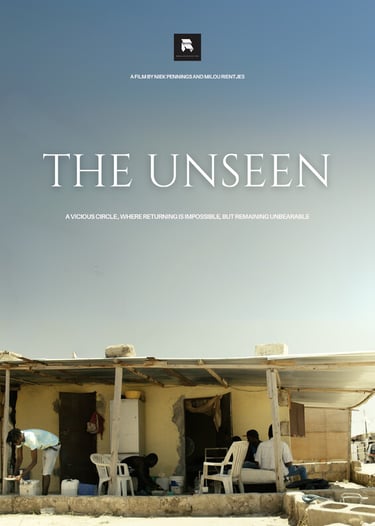

THE STORY OF SHAHEB ALI
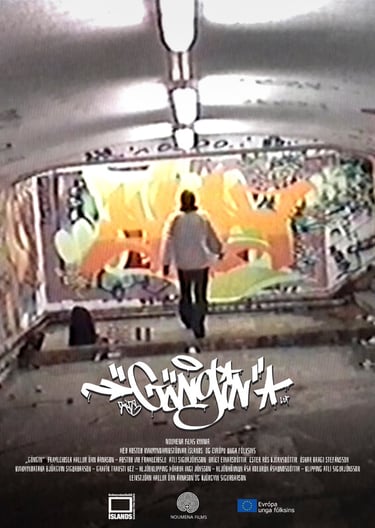

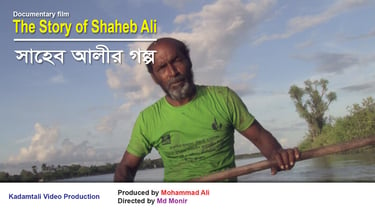

of
Md Monir
THE TUNNEL
of
Hallur Örn Árnason, Björgvin Sigurðarson
THE UNSEEN
of
Milou Rientjes, Niek Pennings
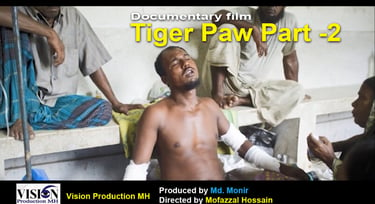

TIGER PAW PART - 2
of
Mofazzal Hossain
Shaheb Ali is one of those who make a living by catching crabs in the Sundarbans. This documentary tells the story of his life. Shaheb Ali lives in Jele Palli of Harinagar area of Nagar Upazila. A son and two daughters each. Shaheb Ali goes to Sundarban forest every morning to catch crabs, returns home in the afternoon and goes to the forest again in the afternoon. He earns a living with his children by selling the crabs he catches from the forest. Shaheb Ali catches crabs from the forest despite being plagued by tigers and bandits in the Sundarbans.
In the last decade of the 20th century graffiti and wall vandalism exploded in Reykjavík, Iceland. While the city enforced a strict no-tolerance policy, a certain underpass tunnel near the city center became one of the most popular places for graffiti artists and vandals to express themselves. The tunnel was the workplace of a public bathroom janitor, a man named Joe, who found beauty in the graffiti and took it upon himself to make the tunnel a haven for the graffiti writers of Reykjavík.
The Unseen follows the lives of three African migrants living in Borgo Mezzanone, one of the largest immigrant ghettos in Southern Italy. Each brings a personal story, with individual motivations that drove them to leave their homeland and unique ways of coping with the harsh reality they now face. Beyond their personal journeys, the documentary reveals the broader systems they are entangled in: exploitation in the agricultural sector, lingering feelings of exclusion and discrimination, and the complex bureaucracy surrounding residency permits in Italy.
Approximately 500,000 people live dependent on the Sundarban in the 17th Upazilla in five districts of southwestern Bangladesh, including Satkhira, Khulnam Bagerhatm, Barguna, and Pirojpur. Every year, a considerable number of people die from the Sundarban tigers. When this unfortunate segment of the community dependent on the Sundarban goes to collect honey, crabs, and fish, they are killed by tigers. Sometimes tigers intrude into localities adjacent to the Sundarban. One man was killed by that tiger. Approximately 300 people in Satkhira district have been attacked by tigers in the last 15 years.
Bangladesh
Iceland
Netherlands
Bangladesh
VOLVER AL ABRAZO
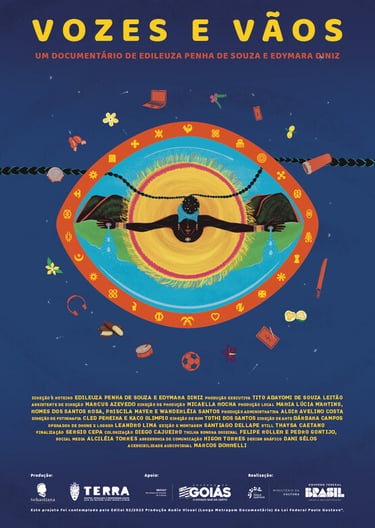

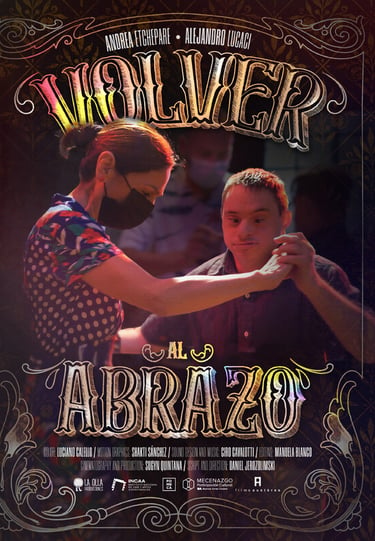

of
Daniel Jerozolimski
VOZES E VÃOS
of
Edileuza Penha de Souza, Edymara Diniz
How does it feel to return to the embrace? Not just the documentary, but the act itself. To dance again, to hug again, to touch again. We thought it would never be possible again. In March 2020, while filming this documentary, "Volver al abrazo" (Back to hug), a Buenos Aires tango club open to people with disabilities, had to close its doors due to the Covid-19 pandemic and reinvent itself. Two years later, we meet again.
In the heart of the state of Goias, young quilombolas (Kalunga) forge their paths between the past and the future, grounding their steps on the land inherited from their ancestors. As they face the uncertainties of the present, they nurture dreams, preserve knowledge, and reinvent traditions. Voice and Gaps is a sensitive and powerful portrait of the resistance and hope of a youth that transforms its cultural heritage into strength to move forward.
Argentina
Brazil

Contact us
Socials
Subscribe to the newsletter


